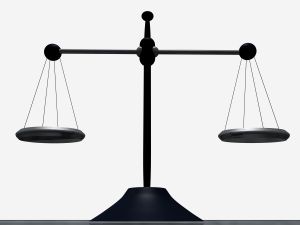
The British Columbia Court of Appeal has overturned a lower court decision in a divorce case, which found that an investment advisor’s book of business was not a family asset, but that a liability against the advisor stemming from a civil suit was.
In a majority decision dated February 21, the court upheld the appeal of Elizabeth Jane Lightle, who appealed an order of the Supreme Court of B.C. in her divorce case.
According to the appellate decision, in the divorce proceeding it was determined that the husband’s book of business was not a family asset that could be divided between them, but that a $400,000 liability arising from his business as an investment advisor was a family debt, and attributed in part to the wife.
On appeal, the wife argued the husband’s book of business ought to be considered a family asset available for division; or, that she should not be held liable for his business debt; among other things. On the question of whether an advisor’s book can be considered a family asset, the appeal court allowed the appeal in a majority decision.
The appeal court ruled that the trial judge erred in not considering the advisor’s book of business to be a family asset available for division. It ordered that the family assets, including the business, and the related liability are to be divided equally.
The appeal court decision noted that the trial judge’s view that book of business has no value was because it is not marketable, or easily divisible; it mostly represents goodwill. And, the advisor intends to continue in business, not to sell and get out of the business, so the book itself has no value.
“The trial judge appears to have concluded that the respondent ought not to be compelled to realize the value of the asset, because doing so would wholly or partially preclude him from earning income,” the appeal court decision noted.
However, the appeal court majority disagreed, saying, “A common sense approach to the identification and division of matrimonial property will naturally lead to the inclusion of business goodwill accumulated as a result of the direct and indirect contribution of the parties to a marriage.”
“I would find the respondent’s business as a financial advisor, including his book of business, to be a family asset,” Judge Peter Willcock said in the majority decision. “I would remit the valuation of that family asset to the trial court and direct the court to assess its value by giving it the notional value it would have in an open market between willing sellers and buyers but on the assumption that the seller would continue to work as a financial planner without soliciting his former clients, and would indemnify the purchaser against existing claims against the seller.”
One of the three-judge panel dissented from the majority reasons however, and sided with the trial judge in ruling that a book of business is not a family asset because of its lack of marketability.